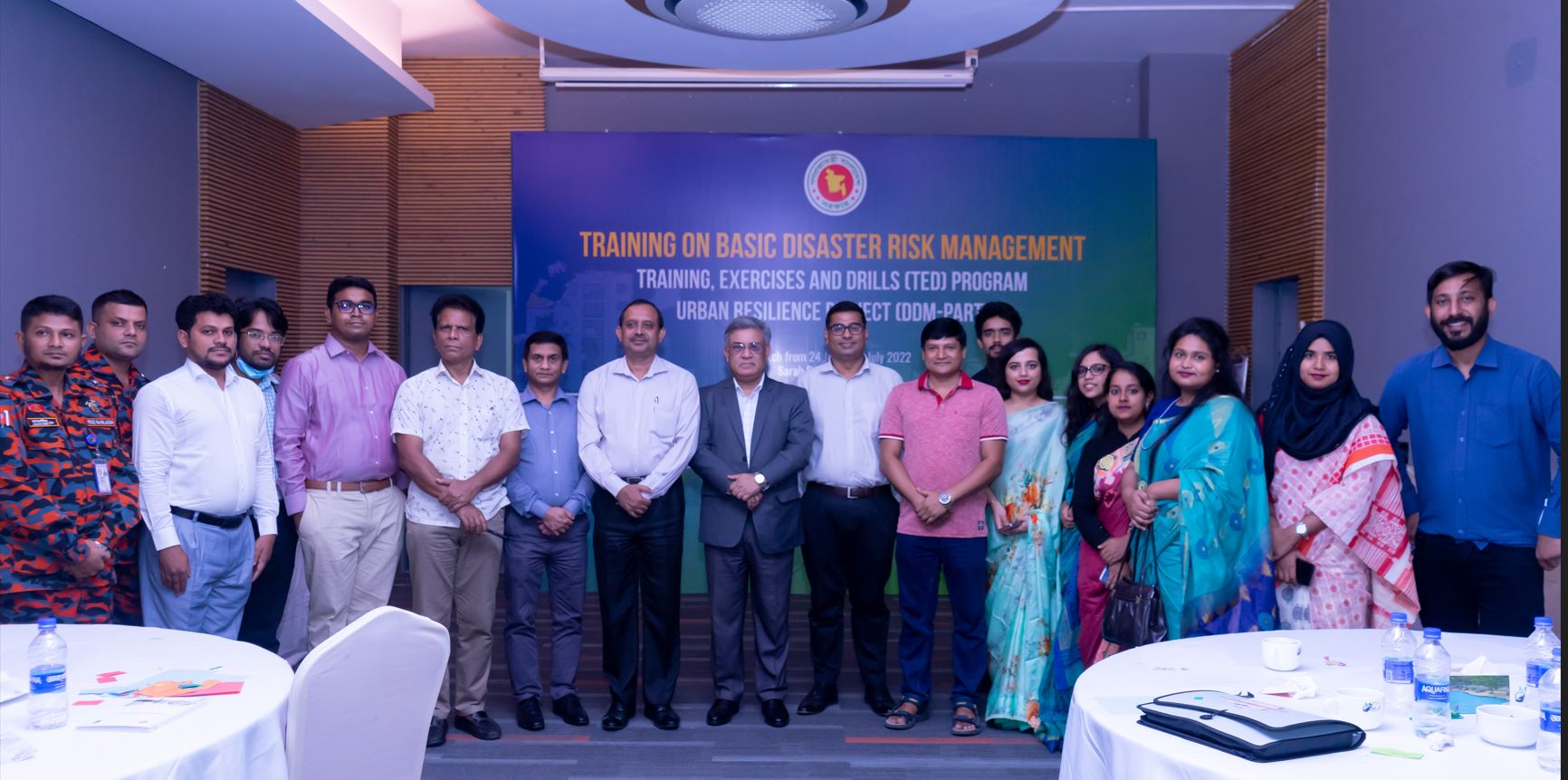
Training on Basic Disaster Risk Management
The University of Dhaka's Department of Disaster Science and Climate Resilience (DSCR) is set to play a crucial role in enhancing disaster management and emergency response in Bangladesh. The country, with its rapidly developing urban centers and high population density, faces increasing vulnerability to natural disasters, including earthquakes. While some disaster management efforts have been made, a structured and progressive framework for emergency management has been lacking. UNDP Bangladesh, through its Disaster Risk Reduction and Resilience Fund (DRRF) project, is stepping in to address this gap.
Under the Urban Resilience Project (URP) of the Department of Disaster Management, UNDP plans to implement the Training, Exercise, and Drill (TED) Programme. This program aims to bolster the knowledge and response capacity of professionals from six key government agencies involved in urban disaster management and emergency response. One core component of the TED program is the "Training on Basic Disaster Risk Management" training.
The training program involved 120 selected professionals from agencies including the Ministry of Disaster Management and Relief, the Department of Disaster Management, the Department of Fire Service and Civil Defence, and city corporations. It was conducted in four batches, each with 30 participants.
The rationale behind engaging the University of Dhaka, particularly its DSCR, in this endeavor is compelling. The university has a rich history of innovation and education, and it is one of the few institutions globally to offer dedicated disaster education programs. The DSCR, established in 2012, is at the forefront of disaster science and management in Bangladesh. It conducts various academic and training programs, blending theoretical and practical knowledge. The department boasts a team of experienced faculty members and cutting-edge research facilities, making it well-equipped to develop curricula and deliver effective disaster management training.
The DSCR's track record, expertise in curriculum development, and a strong network of collaborations with national and international organizations make it the ideal partner for executing the "Basic Disaster Management and Emergency Operation" training. This collaboration holds great promise for strengthening disaster resilience and response in Bangladesh, a country facing increasing climate-related challenges.